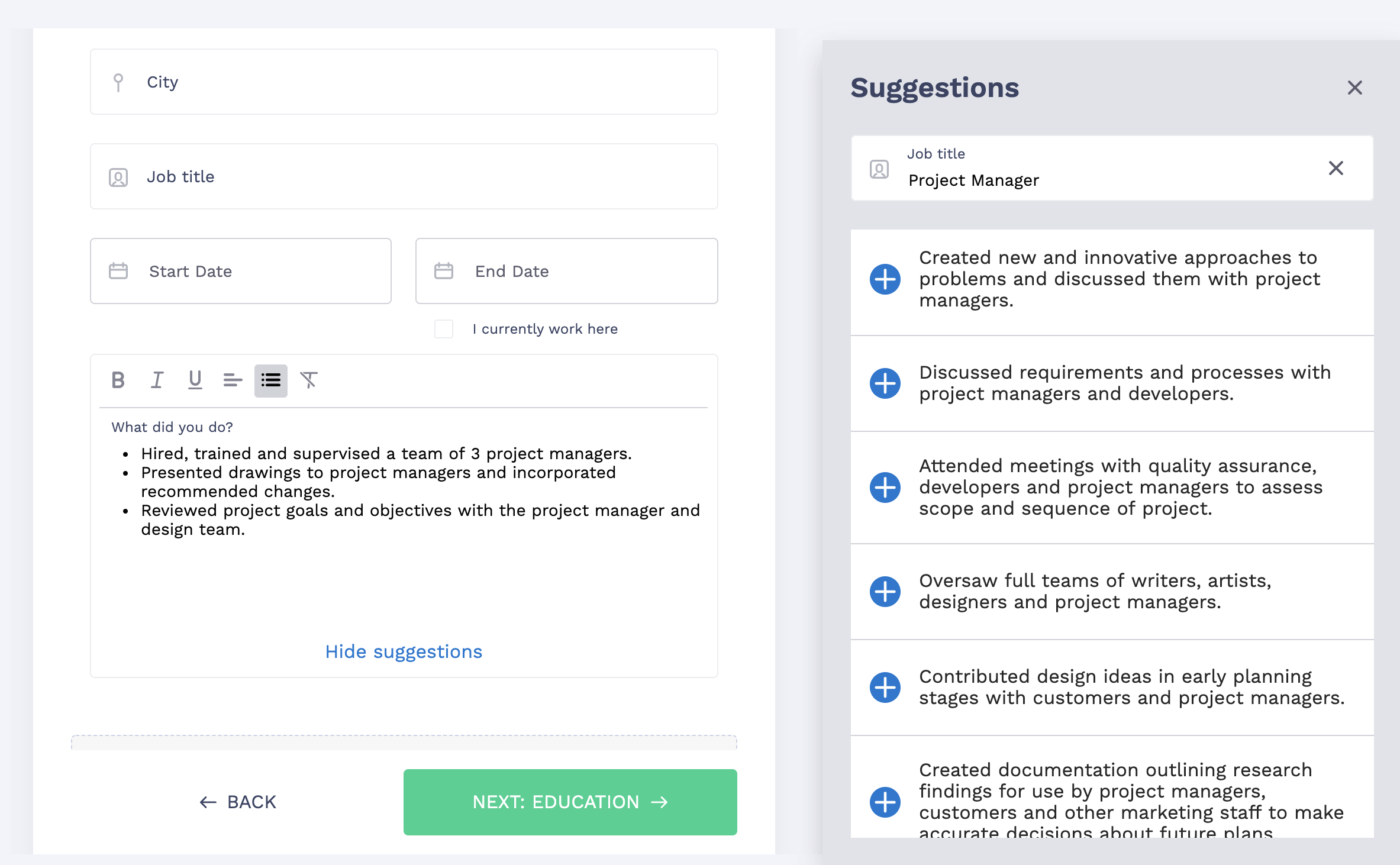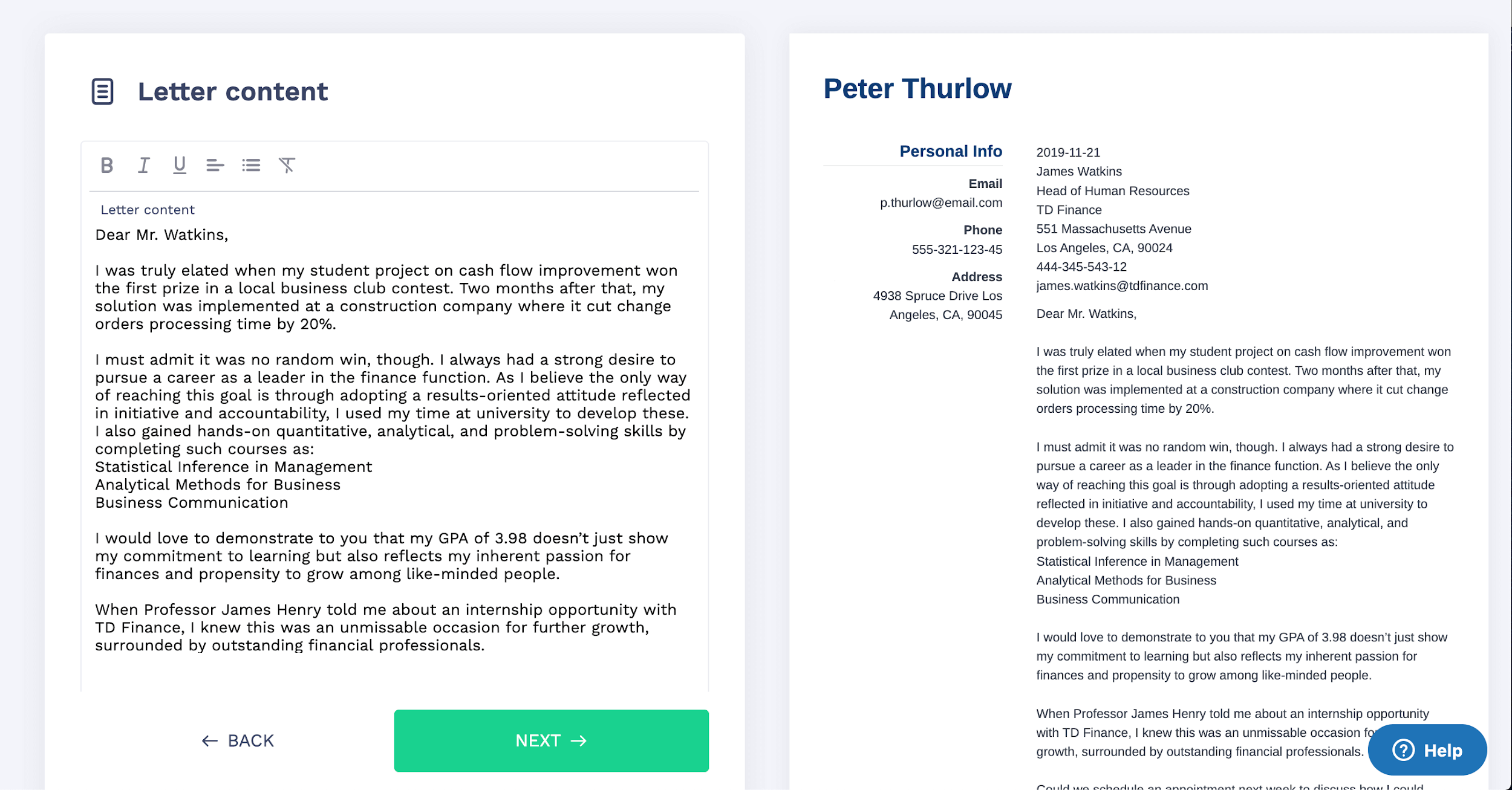
System Administrator Resume—Sample and 25+ Writing Tips
Know your way around Linux? This System Administrator guide will get you a job without a need for 802.11ac-level networking.

Dave Rygielski
Career Expert
The digital world is an inerasable part of modern life, whether we like it or not. If you’re a professional looking for a job in the IT sector, you have to have a whole range of skills, both soft and hard, in order to get ahead of the pack.
You know what they say, being a geek ain’t easy. But don’t worry, because this guide will show you what the most important IT skills you need and how to develop them.
In this article:
Save hours of work and get a job-winning resume like this. Try our resume builder for free. Start by choosing a resume template.

What users say about ResumeLab:
I had an interview yesterday and the first thing they said on the phone was: “Wow! I love your resume.”
Patrick
I love the variety of templates. Good job guys, keep up the good work!
Dylan
My previous resume was really weak and I used to spend hours adjusting it in Word. Now, I can introduce any changes within minutes. Absolutely wonderful!
George
Your resume has to prove that you have a wide range of skills that will make you a valuable resource in the future workplace. Find out what they are and how to include them in your job application:
Deanna Thompkins
Web Developer
4287 Frosty Lane
Syracuse, NY 13202
607-597-7633
deanna.thompkins@gmail.com
Summary
Innovative and task-driven web developer with 5+ years of experience in designing and developing user interfaces for e-commerce websites. Proficient in HTML, CSS, Shopify, and GTM tag setup. Created databases utilizing PHP5, PDO and MySQL that streamlined operations from creating, assigning, and tracking orders, offering a paperless solution, increasing customer satisfaction by 75%. Completed a total of 15 projects for 7 clients.
Experience
Web Developer
CommWeb Solutions, New York City
June 2018–August 2021
Freelance Web Developer
Various
May 2016–June 2018
Skills
Education
BS in Web Development
Syracuse University
2016
Certifications
Additional Activities
Languages
Technology is a good career path because of its fast growth, various career opportunities, high median salary, and fast employment rate. In 2021 alone there were almost 4 million job postings for tech occupations and over 20% of them were for emerging tech roles that required occurring IT skills.
Many companies are looking for new, qualified professionals who respond to the needs of the fast-changing and growing industry.
IT professionals are mainly sought after in companies that produce software, offer IT support, sell products online, and even those in the insurance and banking industries.
Companies that deal with anything IT-related are and will be in the market for professionals, and this situation is not expected to change in the near future.
The IT industry is changing dynamically. The bad news is that it’s not just about learning a programming language and coding with it all your life. It’s all about moving with the times, learning new skills, developing and acquiring new knowledge.
But there are certain basic IT skills that many job openings require. However, a professional working in the IT industry should also have a certain set of soft skills that will make them an IT rock star.
IT Soft Skills
Now let’s talk about how to include IT skills on your resume to make it stand out:
It doesn’t matter if you’re writing an IT resumeor a programmer resume, you need to include a resume work experience section and skills section that highlight your most notable skills. The right skills set depends on the specification of the job position you apply for.
So here is a list of 9 of the most desirable IT skills:
This is the absolute foundation of a programmer's job. Being familiar with programming languages and being able to comfortably navigate them is akin to reading and writing. Usually, the candidate’s knowledge is assessed by the CTO or Senior Developer.
As the Big Data and machine learning markets grow, so does the need for professionals who can work with that kind of data. Data analysis skills are crucial for many industries—from finance and banking to healthcare. Companies are investing a lot of money and energy in acquiring data scientists.
Mobile devices are becoming extremely common in our everyday lives. But what’s even more important—they are also growing to be valuable business tools used to operate, among others, ERP or CRM systems. It is expected that the high demand for professionals who develop mobile app platforms will continue to grow.
According to experts, there is a global shortage of AI talent. This is especially true for technology leaders: chief product officers or chief technology officers, who know how to manage teams of people and AI tools, and how to collaborate with developers and researchers involved in creating these innovative solutions. The demand for specialists—programmers, analysts and even marketers—who understand the AI market, is constantly growing.
Cybersecurity is a broad topic, because it includes everything from design and implementation of secure access to remote resources, database encryption, security audits, security architecture, design and implementation of security procedures, incident analysis, etc. It is expected that the vast majority of trends for 2024 will largely depend on security issues.
Cloud computing offers the ability to use resources and services as needed without worrying about physical hardware and administration, and there are so many specializations within this area. Some companies will be looking for specialists and architects with experience in AWS, Azure or GCP, while others will be seeking engineers who can design optimal architectures, as well as managers who will maintain and supervise these activities. Even the implementation process itself will require the right professionals.
When it comes to technology, seemingly unrelated issues usually have a lot in common. In an industry where process improvement and new quality can determine the competitive advantage of a business, creativity counts now more than ever. Generating original solutions allows the entire team to work more efficiently and the project to be executed more effectively, which benefits the entire company.
Stress management is crucial, especially in large companies and corporations, where time and deadlines play an extremely important role. These pressures can be related to anything from demanding clients to the variety of duties assigned and heavy workloads. Professionals who are able to adapt to this fast work environment, and cope with a variety of responsibilities, are highly valuable in the eyes of employers.
Working in IT is not just about doing what the company asks of you. Every new project requires a constant search for new opportunities to solve even more problems. Many processes can be streamlined, so taking the initiative is beneficial to both the employee and the company.
Writing a resume is tricky business. Remembering the order of resume sections, knowing what skills to include, keeping in mind the reverse chronological resume order rule… there’s just a lot of stuff to memorize.
But don’t worry, this guide below is a great resource for understanding what skills to include on your resume and how to go about doing that. Let’s get started:
The first part of your resume: your professional profile. That’s the first place where you have to really summon the recruiter’s attention.
In short, you can either write a resume summary or a resume objective statement. If you have some work experience, go for a summary of your achievements, skills and qualifications. If you’re writing an entry-level IT resume, briefly explain your immediate professional goals and intentions for applying for the job.
Like this:
Can you tell what attracts you the most in the above resume summary example? If you were the recruiter, your eyes would probably land on the specific technical skills and numbers. And those are the key ingredients to a successful resume profile.
Why do some people get interviewed? For the most part, it’s because they’ve targeted their resume to align with the specific requirements of the particular job in question.
Here’s how to do it:
Let’s look at an example with highlighted keywords:
Web Developer
CommWeb Solutions, New York City
May 2018–June 2021
If a company was looking for someone to design, develop and manage new websites and web applications with experience Javascript, PHP5, and CSS—this candidate right here would totally hit the spot!
Expert Hint: It's important to have a so-called ATS resume, especially if you're applying for a job at a larger company. Most companies use Applicant Tracking Systems to help them sort out 'qualified VS unqualified' candidates during the recruiting process.
Did you know that educational background is as important as experience and skills? Most recruiters want to see some level of education on your resume, especially if you have a degree in a relevant field.
So use that information to boost your chances of getting hired. Here’s an example of a resume education section:
BS in Web Development
Syracuse University
2016
In order to really stand out, you can add additional information, such as: your GPA (if above 3.7), relevant coursework, extracurricular activities, publications, or minors.
Here’s your chance to really show off what you can do. A skills section can be a great way to list all of your abilities and competencies and make them stand out.
And again, here as well, you have to remember about tailoring the wording to the specific job advertisement. Let’s take a look:
Skills
The point of your resume is to show the employer that you live and breathe everything tech. So add some additional info about yourself that proves that!
Like this:
Certifications
Additional Activities
Languages
The ResumeLab builder is more than looks. Get specific content to boost your chances of getting the job. Add job descriptions, bullet points, and skills. Easy. Improve your resume in our resume builder now.

Nail it all with a splash of color, choose a clean font, and highlight your skills in just a few clicks. You're the perfect candidate, and we'll prove it. Use our resume builder now.
There's no denying that the digital world is constantly changing, so it’s important to do everything in your power to keep up with these changes, which is why being an IT specialist involves constant learning and development.
Here are a few tips that can help you improve your IT skills:
The World Wide Web has brought us many new learning opportunities: blogs, podcasts, video courses, online classes, and much more. But honestly… there is nothing better than a good old book.
Virtually every popular language or framework has a community around it. You can join programming Slacks, Hashnode, Freecodecamp, Stackoverflow, and many more! There you'll find a whole bunch of IT experts and enthusiasts, who will gladly help you find the answers to your questions.
Browsing other projects on GitHub can be extremely helpful. By examining other developers' codes, you’ll be able to notice different approaches and solutions, which can save you many hours of work.
The best way to spend money and time is to invest them in yourself and your career. Paid courses and certifications are a great way to upgrade your skills and open new career prospects.
Having a lot of knowledge on a wide range of topics is a good thing, as it opens many doors and leads to a lot of new, exciting opportunities. However, becoming excellent at a niche that interests you the most can be even more rewarding and fun.
Whether you're an industry veteran or an absolute newbie, working in a start-up environment can be both challenging and rewarding. Working in a brand-new business, where the potential is seemingly endless, will help you gain more knowledge and skills.
Coding bootcamps can really help you get started in the IT world, especially if you come from a non-technical background. Many companies hire bootcampers for junior positions.
Taking part in conferences, workshops, meetups, presentations, and conventions will not only help you learn new things, but also you’ll get a chance to meet people from the industry.
Creating a new product or feature, learning a new skill, solving a difficult problem, or giving an important presentation for the first time are all very exciting! Why not share this experience with others to inspire them to become better specialists?
Double your impact with a matching resume and cover letter combo. Use our cover letter generator and make your application documents pop out.

Want to try a different look? There's 21 more. A single click will give your document a total makeover. Pick a cover letter template here.
The demand for IT is at its highest, and it seems that the trend isn’t going to stop here. The need for specialists within this area will grow in the near future, and developing IT skills will be fundamental to the future growth of businesses. It’s important to know which IT skills are sought-after by employers and learn how to develop them in order to have a successful career.
Do you have any other questions about IT skills for a resume? Would you like to share your advice as to which IT skills are best for a resume? We want to hear from you!
At ResumeLab, quality is at the crux of our values, supporting our commitment to delivering top-notch career resources. The editorial team of career experts carefully reviews every article in accordance with editorial guidelines, ensuring the high quality and reliability of our content. We actively conduct original research, shedding light on the job market's intricacies and earning recognition from numerous influential news outlets. Our dedication to delivering expert career advice attracts millions of readers to our blog each year.

Know your way around Linux? This System Administrator guide will get you a job without a need for 802.11ac-level networking.

Dave Rygielski
Career Expert

Many professionals dream of working at Google, but only the best can land jobs there. Move ahead of the pack with a job-winning Google resume—our example will show you how.

Roma Konczak, CPRW
Certified Professional Resume Writer, Career Expert

Is ChatGPT the future of resume writing? Explore how this AI tool can transform your resume creation. Learn editing tips and how to improve your resume with ChatGPT.

Mariusz Wawrzyniak
Career Expert